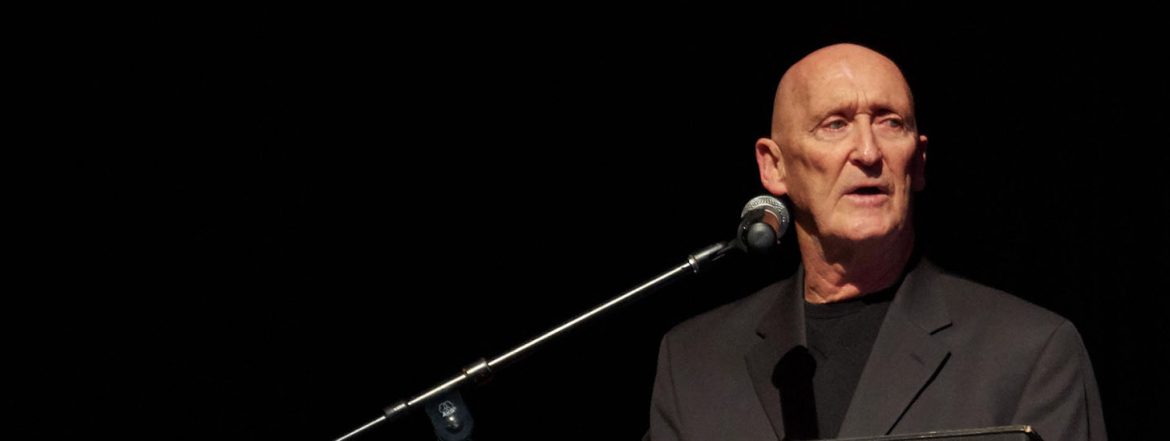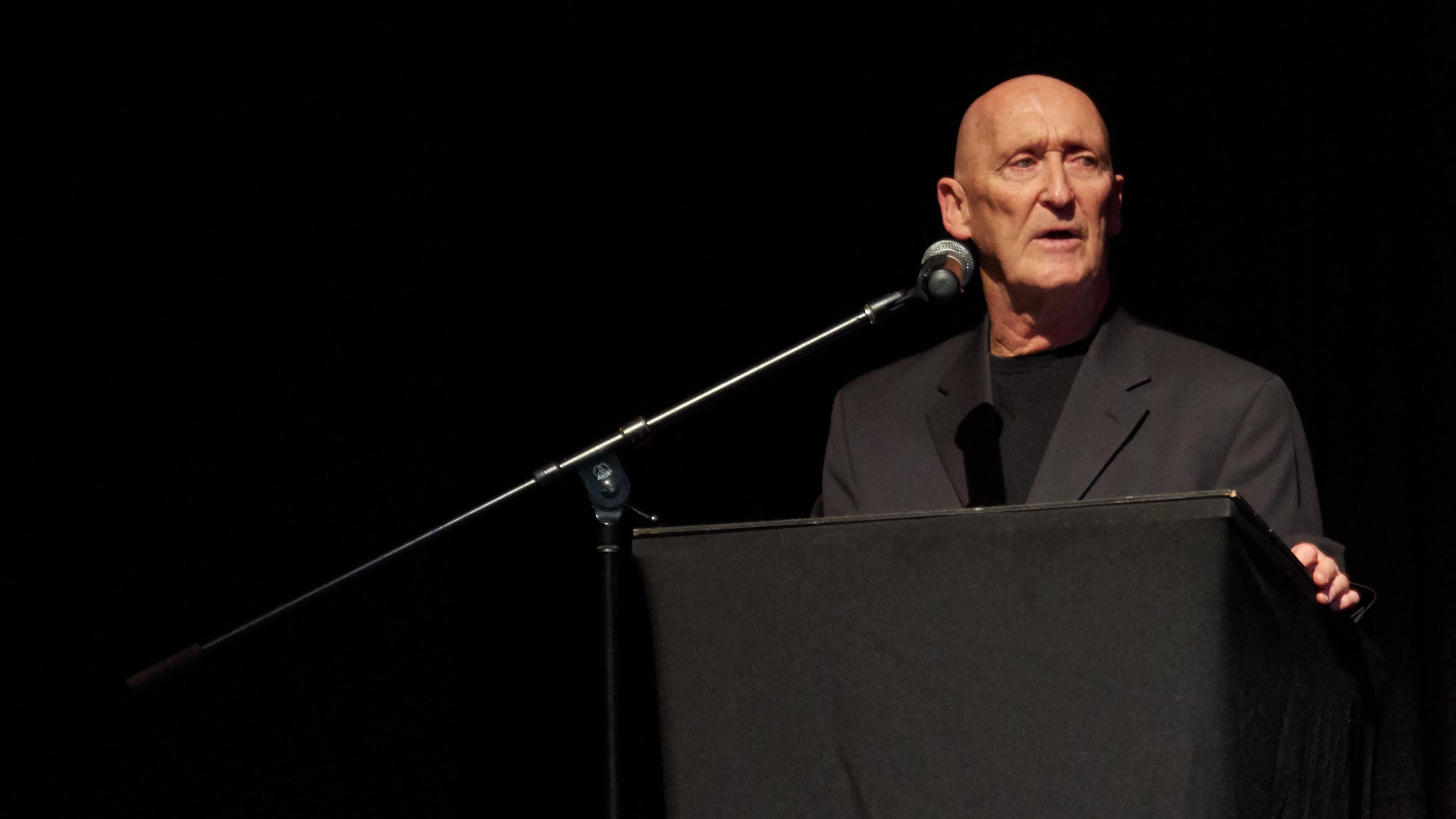David Theo Goldberg: Keeping the Humanities Critical
After twenty-two years of transformational leadership, David Theo Goldberg stepped down from his position as Director of the UCHRI at the end of June, 2022. Born in South Africa and educated at the University of Cape Town in economics, politics, and philosophy and at CUNY’s Graduate Center in Philosophy, Goldberg is an internationally-recognized scholar of race, law, and society and an early innovator in digital humanities. Goldberg’s intellectual commitments and international vision have shaped UCHRI’s most impactful projects. In the words of former UCHRI Board member Wendy Brown (UCB), David “connected the humanities to nearly all that the twenty-first century featured: digitalization, globalization, rising inequality, and new understandings of race and racialism.” And he achieved all of this, Brown notes, “by working harder than anyone else I know.”
Bringing a background in film production to his work as a humanist, Goldberg early understood the transformational effects of new media on contemporary communications, politics, and pedagogy. In 2002, he founded HASTAC, Humanities Arts Science Technology Advanced Collaboratory, with Cathy Davidson. Goldberg and Davidson were named Educators of the Year by the World Technology Network in 2012 and Goldberg was recognized with Macarthur and Mozilla Foundations leaders in 2013 by President Bill Clinton at the Clinton Global Initiative Conference.
A critical theorist in his own right, Goldberg launched the Seminar in Experimental Critical Theory in 2004, an annual ten-day summer institute that brought together major thinkers and artists along with faculty and graduate students from the UC and beyond. Psychoanalysis, Politics, and the Event (2004) asked musicians, clinicians, and philosophers to explore the power of group psychology and the role of collective fantasy in effecting change. Designing China (2009), held in Shanghai, became a kind of critical charette on design in a globalizing world. Noting the presence of design across Goldberg’s career, Achille Mbembe describes David as “an intellectual designer and architect of ideas.”
Recognizing the transformative role of SECT in building out the ideational infrastructure of the greater humanities, UCHRI is revisiting experimental critical theory in dialogue with the ten campuses of the UC. Together, we’d like to continue the kind of creative inquiry nurtured in the first ten years of SECT.
Agilely actualizing the humanities, social sciences, and computational media in his scholarship and institutional work, Goldberg has been a leader in rethinking the liberal arts for the twenty-first century. He is the co-author with Anirban Gupta-Nigam of Liberal Arts in a Future Tense, a Mellon-funded study conducted in dialogue with educational leaders from across the country. Released in 2022, the report argues that humanistic skills and capacities should be diffused across the curriculum in order to address first-order problems (such as climate change, racism, and public health) and the foundational concepts of civic life (such as freedom, morality, and citizenship). The Report will be published as an illustrated book in 2023.
To support these and other initiatives, Goldberg has raised over $70 million dollars in external funding, including an ongoing Mellon endowment. He also secured grants and gifts for systemwide programming in Latin American Studies, Sikh Studies, and humanities and work. UCHRI’s 2022-23 initiative, Refuge and Its Refusals, is funded in part by an endowment that Goldberg raised for cross-campus work in Jewish Studies and another Mellon grant Goldberg raised.
Throughout his tenure, Goldberg continually fine-tuned the funding opportunities offered through the UCHRI in order to nurture new directions in research while also meeting the evolving needs of UC faculty and graduate students and expanding the pool of grantees. Reflecting on Goldberg’s commitment to building the broadest possible community of humanities researchers, Wendy Brown shares that David “did not gesture toward ‘diversity, equity and inclusion,’ but went after it in a deep, substantive way. He brought scholars of color into UCHRI projects and made them feel at home in the institution. He had an international outlook and also made that fundamental to the institution. These things were transformational, both for HRI and as a model for humanities research.”
Seeking new ways to connect diverse faculty from different campuses, Goldberg launched a grant stream called Faculty Working Groups. Melissa Wilcox (UCR), who convened a cohort on Queer and Trans Studies in Religion, notes that UCHRI funding “allowed us to dream bigger, to build not what was possible but what was right” (Foundry Interview). To further this kind of collaboration, we are increasing the funding for Faculty Working Groups and we are also making these grants renewable.
During his tenure at the UCHRI, Goldberg was always looking for new partners and platforms for public work. In 2019, Compose LA, billed as “a showcase of composers, musicians, and ideas,” held events across Los Angeles, in partnership with the LA Mayoral Office of Culture. Goldberg placed the series at “the interface of music, sound, culture, and ideas concerning the musical and the racial.” Featured artists included jazz flautist and composer Nicole Mitchell (formerly of UCI) collaborating with UCHRI Board member Josh Kun, Red Bull Music, and Kaleidoscope Chamber Ensemble as well as Vijay Gupta and Street Symphony.
As a grant writer and grantmaker, as a scholar and mentor, and as an institution builder, David Theo Goldberg continues to stretch the horizons of the humanities in California and on national and global stages (his next book, on the politics of Critical Race Theory, will appear in mid-2023). In the words of artist Isaac Julien (UCSC), Goldberg has “kept the critical part of the humanities alive.” Please join us in continuing that work.
Julia Reinhard Lupton
Interim Director, UCHRI


